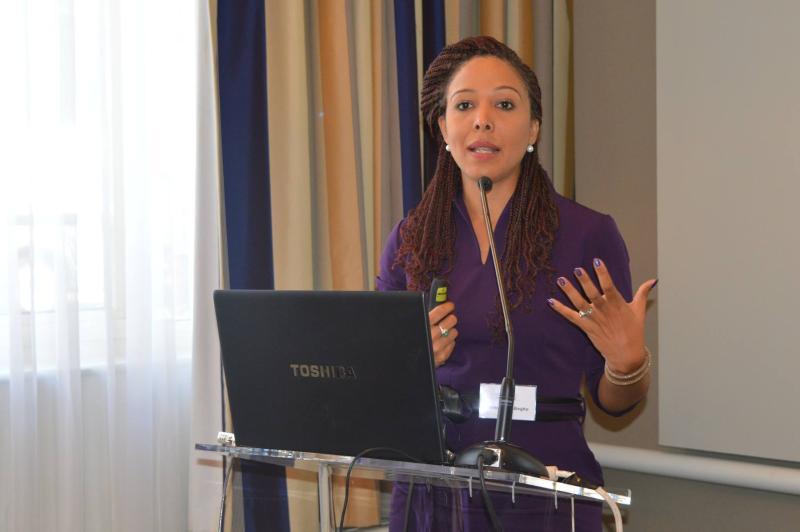Young people, infrastructure, and tailored investments are the keys to developing the Nigerian economy.
I was in Brussels recently on a panel organized by the Konrad Adenauer Stiftung. Here are a few things I learned about the Nigerian economy:
Young people, not oil, are Nigeria´s main resource
It is a common misperception that Nigeria is an “oil economy”. In fact, oil accounts for less than 10% of GDP directly. Services and agriculture are the largest sectors. Nigeria is Africa´s largest economy, and my colleagues always come back from Lagos excited about the potential of the projects they see, across diverse sectors, to promote employment and inclusive growth.
Most of this enthusiasm is down to Nigeria´s biggest resource – its large, youthful and dynamic population. Challenges in the education system need to be addressed urgently, of course— between 8 and 10 million primary-aged Nigerians may be out of school. But Nigeria is also home to millions of highly skilled people. In addition, overseas Nigerians could be tempted back from high-flying careers abroad by the right opportunities. Some sources claim that 17 million Nigerians live abroad, while the UN estimates the size of the diaspora at over 1.2 million. The OECD estimates that 35% of Nigeria’s emigrants are highly skilled.
How can you make a small fortune in Nigeria? Start with a big one!
A colleague shared this joke when he heard I was making a presentation. Many people have unfair perceptions about Nigeria. In reality, many people have made a lot of money there – the most recent Forbes List contains four Nigerian billionaires, including Africa’s richest man, Aliko Dangote.
But investors cannot afford to be naïve about the risks. The underlying challenges include inadequate infrastructure, particularly the power supply; corruption; policy and political instability; macro volatility; and highly complex societal divisions across geographic, cultural and ethnic lines.
Nigeria’s economy needs youth disruptors, not damsels in distress
The complex challenges facing Nigeria can seem overwhelming, but the strong underlying resources also give grounds for optimism. If one could reset the system and change the expectations, there are high chances of the massive take-off we are all waiting for.
What will provide that disruptive impulse?
Technology will be part of the story, but much of the impetus will have to come from Nigeria´s youth. Young people need to take leadership roles, turn things on their heads, and demand more and better opportunities. As Nkemdilim Begho, a female entrepreneur in Nigeria, put it, women and young people cannot hang back and wait for help “like a damsel in distress”. They need to get out there and seize the chance for themselves. In doing so, they will be the ones to drive change.
“It is time for leaders and youth to shape the Africa they want, together”, said another young participant at the event in her blog.

Nkedilim Begho, a Nigerian tech entrepreneur, shares insights on engaging young people to shape Nigeria’s future
Gaps in access to finance can be filled by tailored investment
Institutions like the EIB seem miles away from the youth of Nigeria, but I believe we have a big role to play.
Nigeria has a large and relatively sophisticated financial sector, but finance is not trickling down to the companies and individuals on the ground for a number of reasons, including crowding out by the public sector. Banks also rely mainly on deposits for funding, which means they face a mismatch if they support longer-term projects. As a result, only around 7% of Nigerian businesses use bank finance for long-term projects, according to the most recent World Bank Enterprise Survey data.
The EIB has been providing long-term finance in Nigeria for many years, for example via credit lines that banks on-lend to enterprises. The Bank has also just announced an equity participation in the Development Bank of Nigeria. This will push our impact even further, as the Development Bank will be able to reach smaller firms, providing local currency that domestic firms rely on and the technical assistance that many require to develop bankable projects.
The EIB is also tailoring its finance and working with a variety of partners to reach a group of firms we think could have transformative impacts in areas such as youth employment. That means start-ups, early stage enterprises and innovative ventures. For example, under the Boost Africa initiative we are partnering with the European Commission and the African Development Bank to reach out to innovative and tech-focused firms via venture capital funds.
As just one example, in 2017, the EIB invested in the TLCOM fund. TLCOM´s first investment was in an innovative company called Andela. Andela identifies talented young Africans, teaches them to code, and matches them with opportunities, largely working remotely.
This is the first step towards a wider cultural change. We hope these people will be part of a cohort gaining skills at home and abroad, then developing more opportunities for others.
And where do we need help?
We have to be realistic about the underlying difficulties. The local currency situation is a particular challenge. The situation is too volatile — particularly with the multiple exchange rates in place — for us to offer local currency finance. But that’s what we need to do to serve the smallest enterprises and those working in the domestic market.
The security situation and the risks of fraud, corruption and financing of terrorism are also major challenges for us. We hope the many reforms promised by the government will soon become a reality.
The EIB is working with its partners to mitigate these risks. These partnerships are the key if the four surprises outlined here are to become, well, less surprising. And that will be good for Nigeria’s economy and for the country’s young people.
